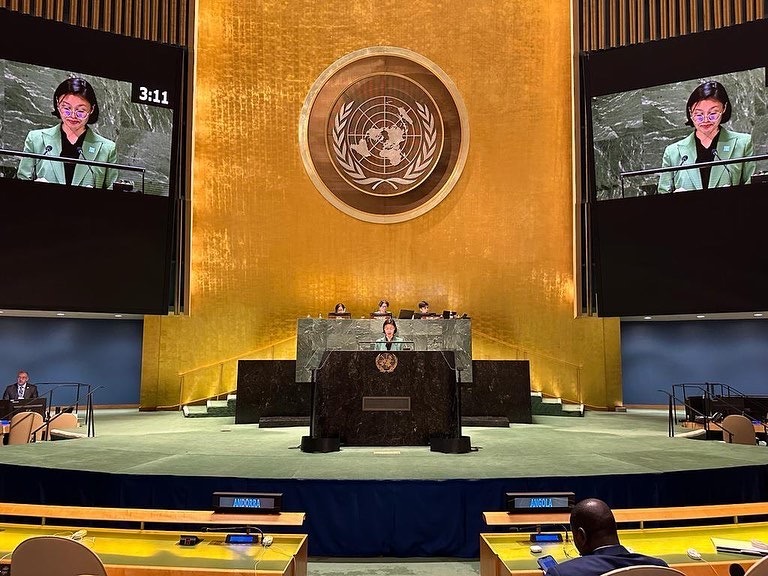Committed cooperation, harm avoidance, and equitable water usage are the fundamental principles for the countries, Kazakh Minister of Ecology and Natural Resources Zulfiya Suleimenova said in an interview with the United Nations Economic Commission for Europe (UNECE) on the sidelines of the UN Water Conference, held from March 22 to 24 in New York.
According to Suleimenova, the principles enshrined in the Convention on the Protection and Use of Transboundary Watercourses and International Lakes (Water Convention) envisage water usage by each country without harming other states.
Water resources management in Kazakhstan requires a regional approach considering their uneven distribution. The minister noted the importance of focusing on more coordinated and integrated water resources management.
“The second major area of work is transboundary cooperation. Seven out of eight river basins in Kazakhstan are transboundary. Almost half of the water comes from other states,” she stressed.
Kazakhstan joined the corresponding UNECE Water Convention in 2000, which helped to put in place a few projects on joint river management and prevention of water pollution. Suleimenova said that one of the most effective mechanisms of the Water Convention is the national water dialogue to create the necessary platform between stakeholders to discuss and find solutions to water issues.
“We are working to assess the vulnerability of the water sector and develop appropriate measures to minimize the negative effects of climate change, which may adversely affect the well-being of the population,” she added.
Within the UN Water Conference, the Kazakh delegation led by Suleimenova met with China’s Minister of Water Resources Li Guoying to discuss issues of cooperation in transboundary rivers, the Kazakh ministry’s press service reported on March 24.
As a UN member, Kazakhstan makes the necessary efforts to achieve the water-related Sustainable Development Goals (SDGs) by 2030.
The 2023 UN Water Conference, the first global freshwater conference hosted in 50 years, will serve as an impetus for the entire world community to ensure the sustainable management of water resources. The conference’s outcome will be the Water Action Agenda, compiled of voluntary commitments from dozens of governments, businesses, and non-governmental organizations.

